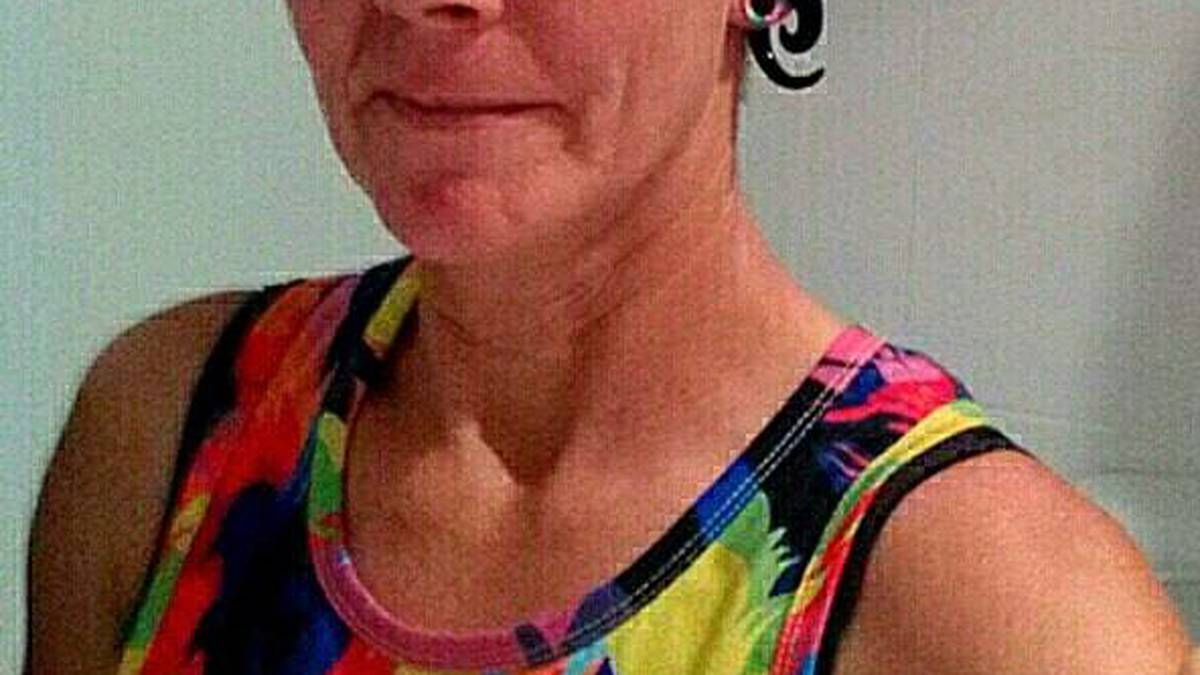The death of a Kiwi mother at an Australian detention centre is one of three under scrutiny by a senior New South Wales Coroner.
Leah Porter, 53, was found dead in her room in May 2022 at Villawood Immigration Detention Centre in Sydney.
Porter’s visa had been cancelled after she served a 12-month prison sentence for assaulting a police officer.
The mother of two was originally from Christchurch but she had lived in Australia for more than a decade.
It is thought Porter took her own life as she awaited deportation to New Zealand.
Her family told media after her death that she “should never have been in detention” – and that her mental illness became worse when she didn’t take her prescription medication.
9 News in Australia repored there were conflicting reports as to whether Porter had refused to take her medication – or denied access to it.
It said in a message sent to a relative before she died, Porter indicated she’d been released from prison on January 4 and “hoped to overturn” her conviction so she could remain in Australia.
Porter’s extended family told 9 News she had “a troubled and complex life, exacerbated by mental health issues”.
She was adopted at birth and grew up in Christchurch, attending Burnside High School and the University of Canterbury.
She worked as a taxi driver and moved to Australia living in Rockhampton in Queensland and more recently Brisbane.
She is survived by two adult sons.
She had separated from their father many years ago.
/cloudfront-ap-southeast-2.images.arcpublishing.com/nzme/CF34QSQGBDYFRYMU5JEXNGD4GM.jpg)
Last month, NSW Deputy State Coroner Elizabeth Ryan began hearing evidence at an inquest into the death of Porter and two other Villawood detainees.
The aim of the inquest was to assess and probe the adequacy of mental healthcare in centres like Villawood – with a particular focus on care given for detainees deemed at risk of suicide or self harm.
Alongside Porter’s death, the Coroner is also looking at the cases of Moses Kellie and Muhammad Hafizuddin bin Zaini between 2019 and 2022.
Both men died in suspected suicides.
The Age newspaper reported that Coroner Ryan heard several weeks of evidence relating to general and mental health services, staffing, training and the “broader welfare of detainees often held for years”.
It said the evidence presented at the inquest “sparked fresh condemnation and calls for a public inquiry into the system”.
And it said the inquest could “pave the way for substantial reform”.
Coroner Ryan has reserved her findings and they are expected to be released in 2024.
/cloudfront-ap-southeast-2.images.arcpublishing.com/nzme/DYU7FZITURCWJJMHWOSWZCKU4U.jpg)
An investigation by journalists at The Age published before the inquest revealed “poor conditions inside Australia’s immigration detention centres, including broken healthcare services, rampant illicit drug trades, violence, under-staffing and allegations of drug trafficking by at least one Serco official”.
The Age reported its investigative work was “supported by evidence” during the inquest.
“One critical issue explored was non-compliance with medication requirements among detainees,” it stated in an article about the proceedings.
“The court heard detainees could not be forced to take their prescribed medication and that guards were only in a position to encourage them to attend clinics to collect medicines, through education and engagement.
“Multiple witnesses said a key barrier to ensuring compliance with medication was the opening hours of the clinic, which was closed during the weekends and at night, when most of the detainees were awake.”
/cloudfront-ap-southeast-2.images.arcpublishing.com/nzme/DHPYCYCUFVECROJZZDLM55FG6Y.jpg)
The Coroner was also told – by staff and detainees – that the drug ice was “commonly” used at Villawood.
Ice is known as methamphetamine in New Zealand.
Detainees were said to routinely use glass pipes to use the drug in their cells and “using points gained by completing activities to buy phone credit vouchers which could be exchanged for drugs” was commonplace.
The Age reported that an Australian Border Force spokesperson defended the quality of services at Villawood. They said the ABF “invests significant resources” to provide “quality amenities and a broad range of health and welfare services and activities”.
“The Department of Home Affairs and the ABF are committed to the welfare of detainees within Australia’s immigration detention network and take all reasonable steps to provide a safe environment to prevent injury and death in immigration detention facilities,” said the spokesperson.
Another key issue canvassed at the inquest was how detainees deemed at risk of suicide or self-harm were monitored and what training staff had to recognise and deal with such issues.
/cloudfront-ap-southeast-2.images.arcpublishing.com/nzme/CD5UCD34TVDVXPVQHO2YBHPWBQ.jpg)
Porter is not the first Kiwi to die at Villawood.
In April 2016, Robert Peihopa, 42, also died suddenly.
He had been detained at the centre for almost 10 months awaiting deportation on character grounds, after he was convicted of multiple criminal offences.
Peihopa was transferred to Villawood after serving time in prison for reckless driving under the influence of drugs.
A Coroner ruled that Peihopa’s death was caused in part by “physical and emotional distress arising from his involvement in a fight”.
Autopsy results revealed at the inquest showed Peihopa died from “methamphetamine toxicity” that had complicated “ischaemic heart disease”.
After the inquest, his mother Hera slammed Australian officials.
“During the Inquest in September I sat in the courtroom and listened as people who work for the Department of Immigration and the people from Serco tried to pass the buck and say they were not responsible for Robert’s death,” she said.
” What we learnt … was that … Serco really doesn’t give a damn about the detainees.
“Evidence came out that basically nobody who was involved in the management and supervision of my son inside Villawood had the slightest understanding about what is required to supervise and care for the health and welfare of detainees.”
Anna Leask is a Christchurch-based reporter who covers national crime and justice. She joined the Herald in 2008 and has worked as a journalist for 18 years. She writes, hosts and produces the award-winning podcast A Moment In Crime, released monthly on nzherald.co.nz




 Speaker apologises to Labour leader Chris Hipkins over exchange with Prime Minister Chris Luxon about his wife’s Tesla
Speaker apologises to Labour leader Chris Hipkins over exchange with Prime Minister Chris Luxon about his wife’s Tesla